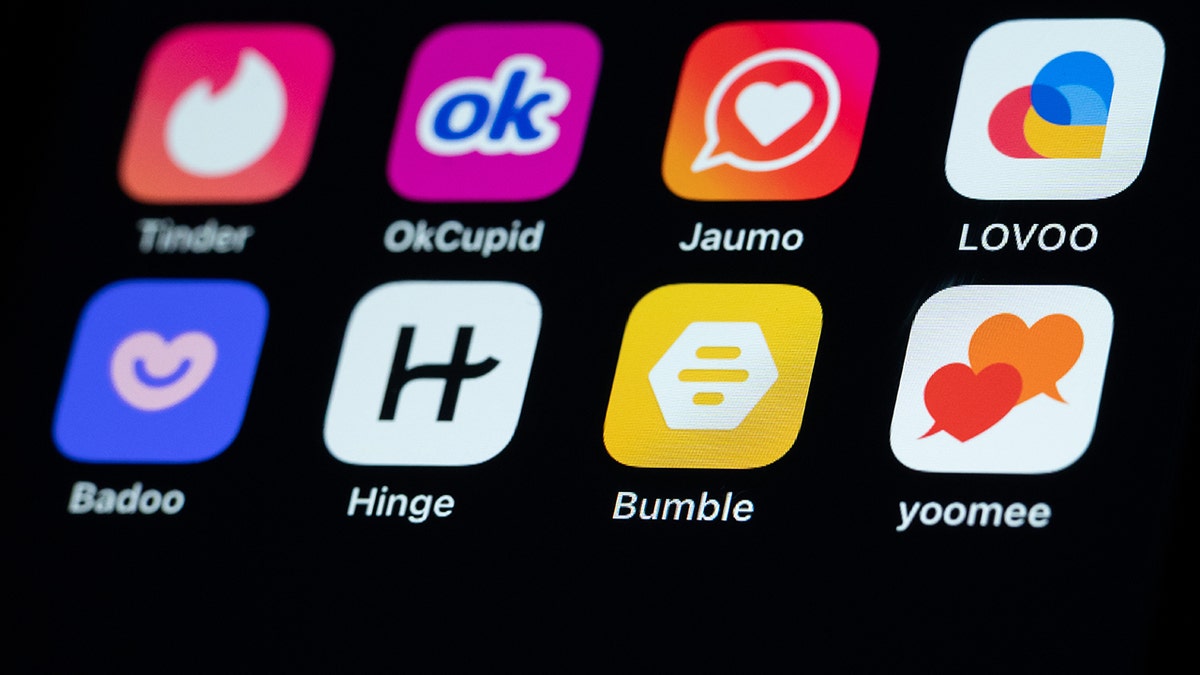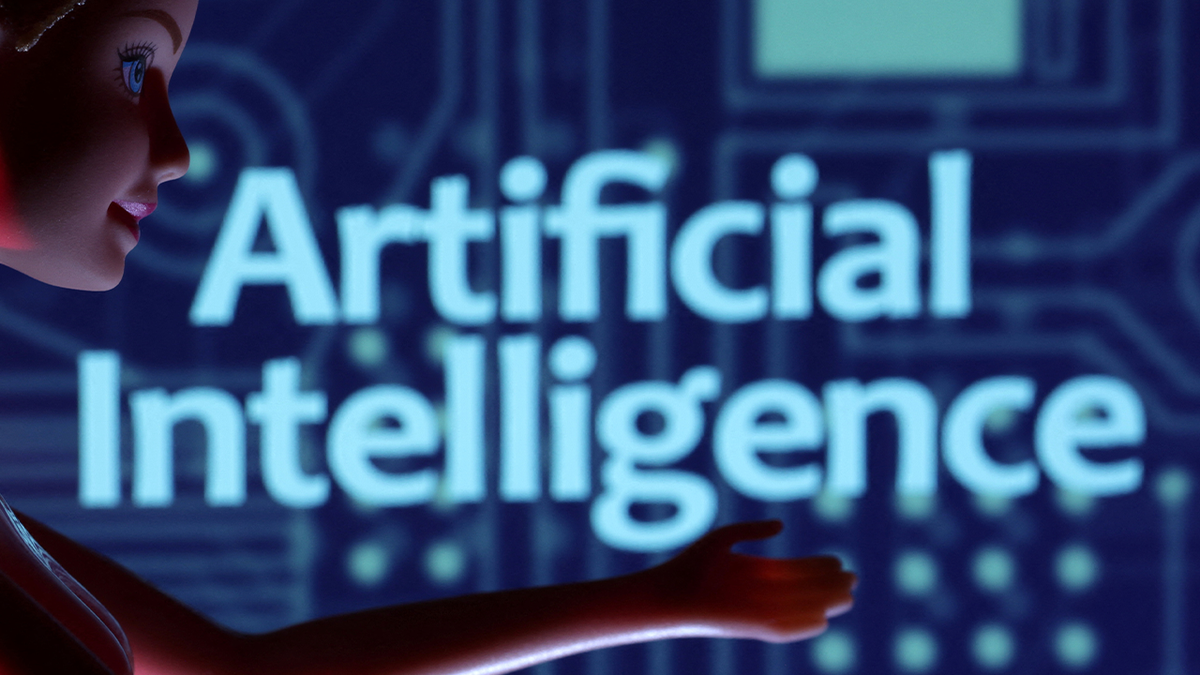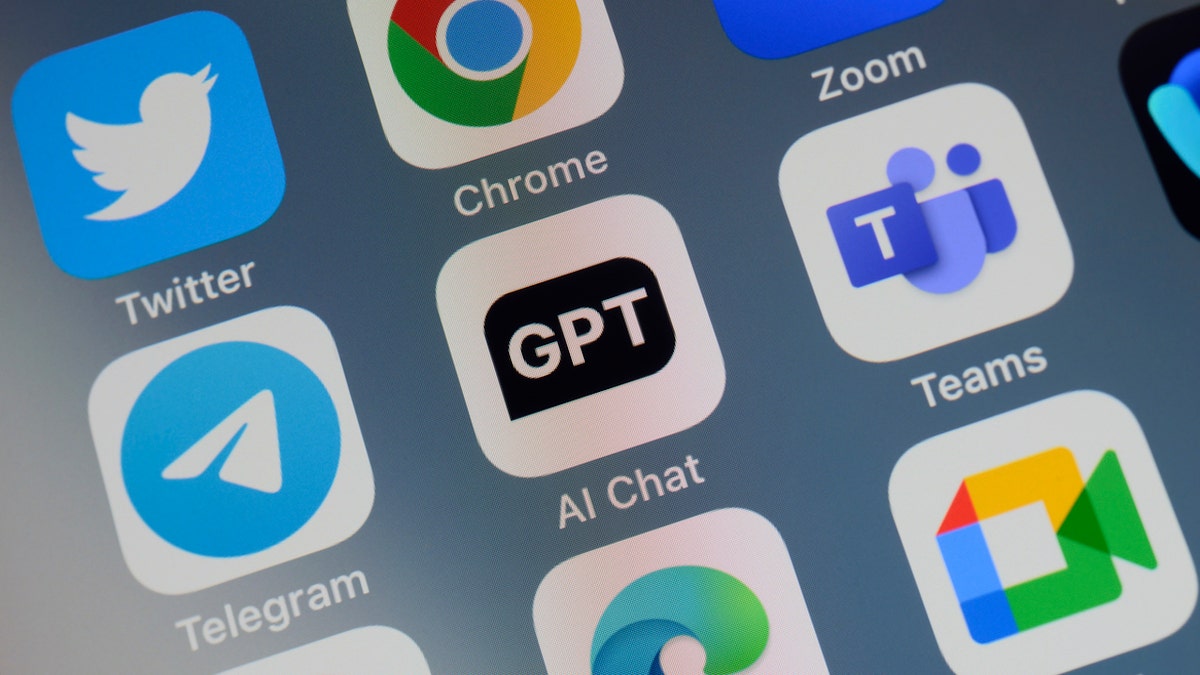Experts discuss impact of artificial intelligence on relationships: 'default connection'
Angie Wisdom and Dr. Chirag Shah discuss how artificial intelligence could play a role in online and professional relationships.
Artificial intelligence (AI) is already providing significant benefit to people searching for love, negotiating a business deal and struggling with depression. However, according to experts, an over reliance on the technology could cause a "devaluation" of human connection and lead to diminishing authenticity.
Rijul Gupta, CEO and co-founder of DeepMedia, told Fox News Digital that as AI continues to evolve, the technology has the potential to enrich social interactions, deliver companionship, and provide support in areas like child-rearing and elder care.
Furthermore, Gupta predicted AI is set to "revolutionize" online dating by enhancing existing platforms, such as Tinder and Hinge, with new algorithms that provide more "personalized" and "efficient" matchmaking.
"Envision a dating experience meticulously tailored to your preferences and desires - this is the transformative potential of AI in the realm of romance. By analyzing user data and preferences with unparalleled precision, AI ushers in a new era of highly accurate matchmaking. AI-powered chatbots facilitate engaging conversations, fostering meaningful connections," Gupta said.

Dating apps can be seen on the display of an iPhone SE. (Silas Stein/picture alliance via Getty Images)
However, Gupta noted AI's role should only serve to augment one's search for love, not "replicate the intangible emotions" that define our collective humanity.
Synthesis founder and CEO Oliver Goodwin said AI is already impacting human relationships, with chatbots explicitly developed to provide virtual companionship for those feeling isolated or lonely. These chatbots can speak with users and offer advice based on online knowledge while also recalling past conversations to contextualize the individual's feelings.
For example, AI models have been developed to provide users with personalized advice and support for managing their depression. They detect patterns in user behavior and suggest activities or lifestyle changes that may help reduce their systems. The chatbot also acts as a sounding board for the individual to share their thoughts should they feel uncomfortable speaking with family and friends.
However, Chris Winfield, the founder of Understanding AI, said that while AI can help to better facilitate dating and relationships, it also illuminates concerns about privacy, data security and the potential for the "devaluation" of human connection.
"In mental health, AI can play a role in early detection and treatment of depression, but it is essential to ensure that human empathy and understanding remain central to the process. In both instances, human connection is still key," he added.
Attain AI CEO and founder Naeem Talukdar expressed sentiments similar to Winfield's. He said that AI could transform dating and relationships by enabling "virtual reality connection experiences" and providing relationship advice to users. He added that AI could also help individuals understand their emotional state, leading to better self-awareness and communication.
EVERYTHING YOU NEED TO KNOW ABOUT ARTIFICIAL INTELLIGENCE: WHAT IS IT USED FOR?

Artificial Intelligence words are seen in this illustration taken March 31, 2023. REUTERS/Dado Ruvic/Illustration (REUTERS/Dado Ruvic/Illustration)
"On the other hand, an over reliance on AI may also lead to superficial connections, increased loneliness, and difficulties in developing genuine emotional bonds," Talukdar said. "We've seen early stages of people developing bots for the purposes of companionship - there's a very slippery slope emerging. It is crucial to strike a balance between AI-assisted technology and human interactions to ensure meaningful connections and mental well-being."
Dr. Chirag Shah, a professor at the Information School at the University of Washington, told Fox News Digital that new AI systems are capitalizing on people's desire to have personalized, contextualized conversations online.
In his research over the last decade, Shah found that people were utilizing various online platforms and communicating with others to answer questions, but also simulate the need for human interaction. That trust between humans online is now being mapped out to AI, which could become the new "default connection."
"This is not a real person who's generating these things who you're conversing with, but to a lot of people, this is actually quite satisfying," he said.
Shah said the AI systems' capacity to understand and generate natural language has led to more extensive user engagement and connection, a byproduct that Shah said could be potentially harmful.
However, Shah noted that the interactions provide benefits, allowing others to have deep conversations that would otherwise be reserved for a therapist.
For example, an AI can role-play, offering the user responses that attempt to simulate the feeling of conversation with a parent, cousin, or sibling while possessing the knowledge contained within most of the internet.
"It kind of combines the best of both worlds," Shah said.
He added that AI could be implemented in other ways that could act as a stand-in for a human counterpart.
Shah detailed two different types of AI models that are already having an impact on various industries: passive and active agent collaboration.
In passive-agent collaboration, an AI will evaluate the conversations of two or more people working on different tasks to come to a shared solution. The agent uses the available knowledge to attempt to mediate and come to a serviceable endpoint for all parties.
However, an AI does more than just help people collaborate in active agent collaboration. It makes its own recommendations and contributes to the conversation.
Shah noted that both AI models are typically tuned to a particular task and could create considerable developments in reservation software and email clients.
For example, when determining a meeting time with a client, one could include the AI agent in the conversation. By evaluating the dialogue between the two parties and accessing the group's calendar, the AI could suggest meeting at a specific date and time later in the week.
"Ultimately, with or without other humans, you could have a conversation and get these proactive recommendations," Shah said.
Shahs also highlighted one of the teams of students he is advising. The team is working on developing an AI for career counseling.
JAPANESE CITY BECOMES COUNTRY'S FIRST TO USE CHATGPT TO HELP WITH ADMINISTRATIVE TASKS

A business man having remote video conference call with his business team at the beach during vacation in holiday. (iStock)
Typically, when a student goes to career counseling, they must make an appointment. Often an appointment is booked far in advance. The student also has a limited time. Sometimes, the student may leave the appointment and realize they forgot to ask the counselor a question, prompting them to follow up by email.
"But now, if you could have a system that can read through your resume, can understand what you're trying to accomplish, what are the job opportunities available, has knowledge of all the things that are out there and can now customize responses to you. That's available to you 24/7. Obviously, that's a great solution for most people," Shah said.
On the flip side, Shah said it is essential to realize that large language models are prone to hallucinations and could pretend to know things that are not factual or potentially problematic. Noting this shortcoming, Shah said it was important for experts to oversee such collaboration and stressed the need for users to understand the limitations of the technology.
Life and business coach Angie Wisdom said that she believes AI will elevate professionals trying to improve their communication skills, whether in a negotiation or when presenting to a client.
In the short term, Wisdom said AI could provide an enormous benefit to people to help them work on their delivery or remove emotion from what they are saying. However, Wisdom noted people must use it and learn from the technology to incorporate it into their being.
She added that throughout her 25 years of coaching, fear of rejection is one of the major things that get in the way of people, whether in personal or professional relationships. She said people often wonder whether someone will accept them and whether they are saying the right thing or in the right way.
CHATGPT FOR HEALTH CARE PROVIDERS: CAN THE AI CHATBOT MAKE THE PROFESSIONALS' JOBS EASIER?

Close-up of of the icon of the ChatGPT artificial intelligence chatbot app logo on a cellphone screen. Surrounded by the app icons of Twitter, Chrome, Zoom, Telegram, Teams, Edge and Meet. (iStock)
Using AI, the process of professional coaching could be accelerated because the individual takes comfort in knowing that the technology is saying their words for them, and they do not risk being judged, according to Wisdom.
With that in mind, she said society runs this risk of people relying so heavily on the technology that they create a disconnect in who they are, cultivating a kind of "alter ego."
"I think that gets really dangerous because we start to kind of squash the authenticity of people and them feeling like, wow, these people like me for who I am and they communicate with me, or they're in a relationship with me because of my authentic self, not because I presented some excellent explanation on how to navigate an argument or how to ask for something that you want in a relationship," she said.
Wisdom added that she believes in the continuance of a human element in professional development, but just the act of speaking out your concerns, even if it is just into a Google Voice assistant or cell phone notes, could be beneficial. She also noted that AI is not yet capable of understanding the full context around a person's responses, something a person can pick up by evaluating body language, tone of voice and more.
CLICK HERE TO GET THE FOX NEWS APP
"I sit down with clients every single day and often ask, is that 100% true what you're saying? You know, like, what aren't you saying right now? What was that deep breath for? What made you roll your eyes right there?" Wisdom said. "So, people, you know, you kind of have this information in your head and what you're actually willing to share, willing to say might be different than what really is deeper inside that you need further questioning on."


